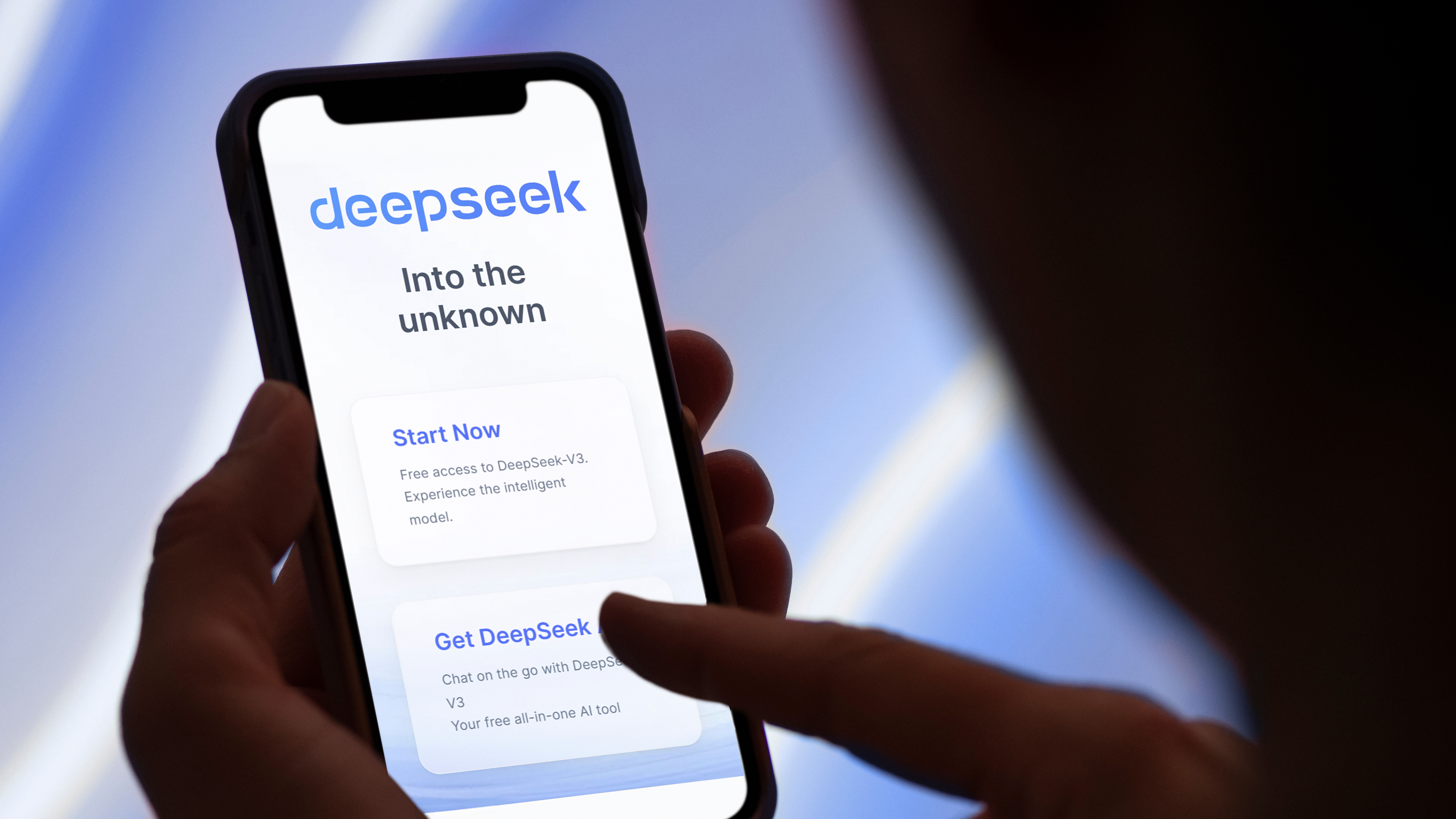DeepSeek blocked from app stores in South Korea
Officials take issue with DeepSeek's collection and processing of personal data

- South Korea privacy watchdog has temporarily halted downloads of DeepSeek
- DeepSeek is working with authorities to get compliant
- Latest in a series of privacy concerns raised about AI chatbots
South Korea’s Personal Information Protection Commission (PIPC) has temporarily halted new downloads of Chinese-owned AI chatbot DeepSeek.
Reports from TechCrunch confirm the app is still up and running for those who have already installed it, and that the decision won’t affect usage of the app - but new downloads will be halted until the Chinese firm complies with Korean privacy laws.
South Korea isn’t the first to ban new downloads of the chatbot, with the model disappearing from the Italian App store and Google Play Store in late January 2025 after the country’s data watchdog filed a privacy complaint and asked for information on how DeepSeek handles users’ personal information.
Recurring concerns
DeepSeek has since appointed a local representative to work with authorities in South Korea, but the data protection agency has said it ‘strongly advises’ current users to refrain from entering personal data into DeepSeek until a final decision is made - here’s everything we know so far.
The restriction is temporary whilst the PIPC assesses the use and storage of data by DeepSeek, but the agency confirms the model will be available for download once it is compliant.
The PIPC found DeepSeek had transferred the data of South Korean users to ByteDance - TikTok’s parent company. TikTok, as many will remember well - was briefly banned in the US over privacy and security concerns.
DeepSeek isn’t the first AI model to come under scrutiny for privacy concerns. The nature of Large Language Models is a bit of a privacy minefield since they scrape every corner of the internet for data to train their models - without the consent of the owners/authors/creators of the media they use.
Are you a pro? Subscribe to our newsletter
Sign up to the TechRadar Pro newsletter to get all the top news, opinion, features and guidance your business needs to succeed!
Further than this though, OpenAI has never asked people for permission to use their data, and it’s not possible for a person to get confirmation of what data has been used or stored - or for it to be deleted. This contradicts an important facet of GDPR laws, which protect the right to be forgotten and should guarantee individuals the ability to have their personal data erased upon request.
As the new kid on the block, DeepSeek is in the spotlight for a number of reasons - and there have been legitimate concerns about how the platform collects and stores your personal information like your email address, name, and date of birth, as well as the data you enter into the chatbot, and the technical information of the device you’re using, like IP address, OS, etc.
Using AI safely
So is DeepSeek safe to use? And can it be used whilst maintaining your privacy? Well there are things you can do to mitigate the risks.
As with all LLMs, if you’re concerned about data privacy, using AI is probably not a good idea. LLMs scrape data from the internet without permission, and will use your interactions to add to the pool of data the model is trained with, and that’s not something you can opt out of, DeepSeek included.
If you’re in South Korea or Italy and still want to download DeepSeek, even the best VPN services will need a little extra help - as they don’t spoof your App store location, so you’ll need to download it from elsewhere. This is something we usually advise against, as it can be a really easy way to be tricked into downloading malware - so do so with caution.
In terms of the cybersecurity risks, there have been reports DeepSeek is ‘incredibly vulnerable’ to attacks, and failed to block any harmful prompts when tested, severely underperforming against its rivals.
You should be wary when using these chatbots - especially on a company device or if you work in an industry that has national security connections - there’s a reason both Australian and Indian government departments have blocked the use of DeepSeek from work devices.
A general rule is that users should be especially careful with the information you give to a chatbot. Don’t enter your health information, financial data, or anything that you wouldn’t want a third party to know. Monitor your accounts for any suspicious activity regularly, and flag anything you see as soon as you see it.
You might also like
- Check out our list of the best firewall software around today
- “This is a wake-up call" - the DeepSeek disruption: 10 experts weigh in
- We've also rounded up the best malware removal software on offer right now

Ellen has been writing for almost four years, with a focus on post-COVID policy whilst studying for BA Politics and International Relations at the University of Cardiff, followed by an MA in Political Communication. Before joining TechRadar Pro as a Junior Writer, she worked for Future Publishing’s MVC content team, working with merchants and retailers to upload content.
You must confirm your public display name before commenting
Please logout and then login again, you will then be prompted to enter your display name.